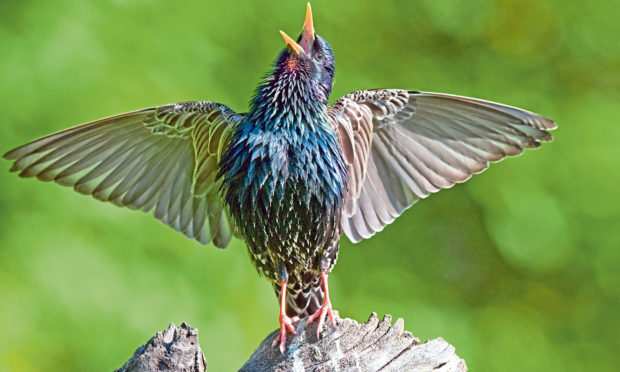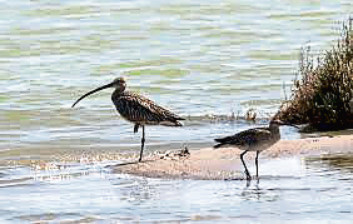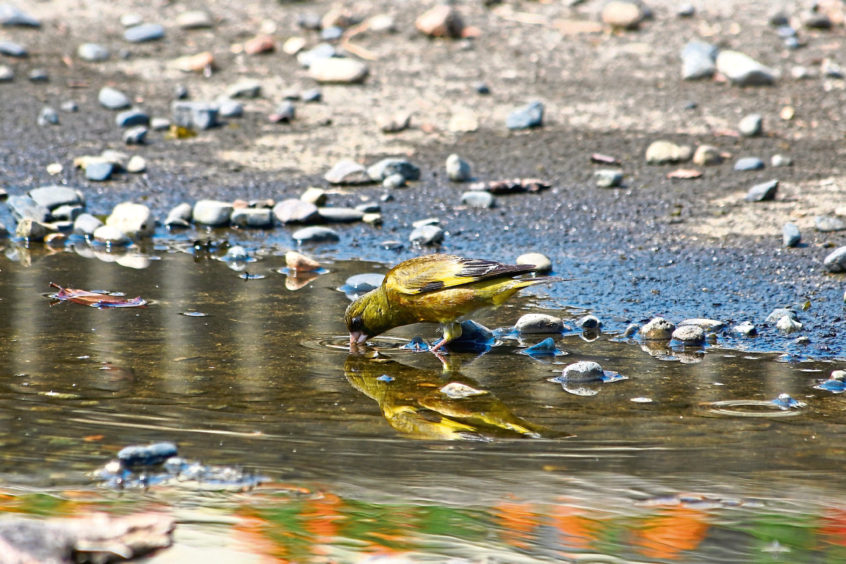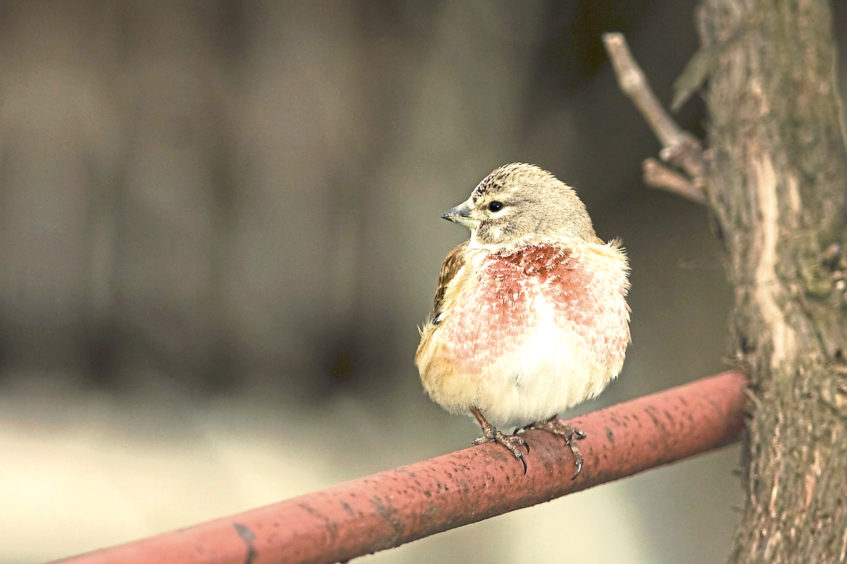Can you imagine being unable to hear the song of the starling or linnet in the hedgerows, or the call of the curlew across the wild marshes? Once common to Scotland, these three species of songbirds have fallen dramatically while the past 50 years has seen a 50% decline in many species of UK songbirds.
Songbirds are perching birds, belonging to a group known as passerines – nearly half of the world’s birds are in this group.
These birds have specially adapted feet with three toes facing forward and one toe facing backwards. This allows them to grip onto a perch.
Songbirds can be seen in gardens, in parks, woodlands and on farmland. Most of the birds that visit feeders in our gardens will be songbirds.
These birds have a highly developed voice box which allows them to sing beautiful and complex songs. Their songs can be heard most clearly early in the morning, called, of course, the dawn chorus.
Colin Strang Steel, chair of SongBird Survival, the UK’s only independent charity that funds ground-breaking university research to help understand this decline, explains: “There is a very complicated set of contributing factors to the 50% decline in songbirds over 50 years, but if you think about conservation of any species, it is like a three-legged stool: all three must be strong or else the population will collapse.
“So, for birds, that means adequate food, habitat, and lack of predators. All three ‘legs’ must be balanced. We strive to save songbirds with science through funding academic research into these major factors,” he continues.
“At present we are investigating predation including cats and other predators; pesticide research and a project on grey squirrels in woodland areas which had to be paused due to Covid-19 reasons and lack of funding.”
Wild birds play an enormous role in the planet’s biodiversity – they are bio-indicators, meaning that their numbers are a good reflection of the health of wildlife in the wider countryside.
Colin says: “Like insects – which are fed to chicks – their success can be seen as a ‘litmus test’ of our planet’s health.
“Besides which, they have helped us through hard times of lockdown over the past year: singing birdsong is proven to help our wellbeing and mental state as it symbolises a lack of threat in our environment.”
Winter is particularly hard for our songbirds and birds such as robins can lose up to 10% of their body weight in a single night due to the cold.
“Also,” says Colin, “darkness is a factor whereby birds cannot actively search for their food for so many hours of the day, which can leave them vulnerable to starvation.
“The earth is frosted and hard in the winter, birds cannot dig for worms like they usually would. Other insects including caterpillars, beetles and grubs hibernate in the undergrowth so cannot be found easily by the birds.
“Also, their predators are hungry, so birds have to be constantly on the alert, which restricts the amount of time they have to scavenge for food.
“This is why feeding birds via well designed feeders that avoid other species eating the food is so important. As is cleaning feeders regularly to help reduce the spread of disease.”
Cats are an obvious threat to songbirds’ survival while other numerous predators include corvids (magpies, crows) sparrowhawks, grey squirrels, rats, stoats, weasels, badgers, mink and even hedgehogs.
“They must also compete with species such as the invasive non-native ring-necked parakeet,” says Colin.
Recent research by Fly Research shows that four out of five of us say listening to the sound of birds singing makes us happier, while another 72% explained it made them feel less stressed, so it’s vital that we all do what we can to help turn the decline around.
Luckily, special event days like National Robin Day (December 21) and International Dawn Chorus Day, which celebrates nature’s greatest symphony on the first Sunday in May, help raise awareness of these wonderful little creatures but there is much more to be done.
If each household does a little bit, we can make a big difference to our wildlife and birds. Most garden birds have moved from their natural homes in woodland to take advantage of the food and nesting places in our gardens. and some rural gardens may see farmland birds visiting birdtables too.
“To help us fund the research into the decline of songbirds over the last 50 years, we need support now, more than ever,” says Colin.
“Please donate what you can via songbird-survival.org.uk – every donation counts towards saving our beloved songbirds.
“If you can’t donate, we must do our bit for the birds by planting shrubbery and trees in our gardens for the birds to shelter and nest in as well as nectar-rich plants for insects and put out water and food for the birds to feed on during these hard winter months.”
Top tips
Like all wildlife, birds need food, water, places to roost, places to breed and safety from predators.
Feed your birds by offering a range of feeding sources with your planting, garden structures and supplementary foods.
Insects, slugs, snails, worms, caterpillars, spiders as well as fruiting trees, buds and seeding plants will offer a wide range of natural food sources. Offering extra food such as peanuts, seed mixes and suet can be important for songbird and other small bird survival, especially in the colder months.
In winter natural food sources are scarce and supplementary food, both in gardens and throughout the wider countryside, is essential. But don’t give birds bread, especially white bread – it’s not a high quality food and will not give them the energy they need to survive.
Milk can upset their tummies and make them very poorly, as can mouldy or stale food, while salty food can dehydrate birds. Avoid desiccated coconut too as it can swell in birds’ stomachs.
Don’t forget your ground feeding birds and other small creatures
Certain birds such as blackbirds, robins & dunnocks prefer to feed on the ground.
If you don’t wish to scatter food on the ground, a small dish will be sufficient. Fill with ripe fruit such as apples or raisins, songbird mixes or mealworms.
Make sure they have a source of fresh water and keep bird baths clear of snow and ice. To stop them freezing over add a clean ball (eg golf or ping pong ball) or wobbly rock to the water.
Think about shelter the next time you’re planting your garden.
Like us, birds look for shelter to keep warm. Evergreens are a good source of shelter and will offer them some comfort in the cold weather.
Some ornamental conifers offer good cover as do privets, laurels and Pyracantha. Holly and ivy provide great cover and can be a saviour for many small birds.
Making a windbreak can be an effective way of keeping an area of your garden clear from drifting snow and bitter winds, allowing the birds access to feeders during the winter.
An old Christmas tree, or a pile of branches and other foliage can be placed on the ground. Adding a sheet of plywood to serve as a wall will drastically reduce the wind.
Behind the contraption, on the sheltered side you can clear the snow from the ground and either scatter seed or use ground feeders.
Providing a place for birds to hide near to a feeding station should encourage them to come as it means its only a short distance to the food and water which allows them to expend as little energy as possible to reach their meals. this way they have more energy to stay warm!
In the cold weather predators will need to eat more to keep warm as well.
There are a few things you can do to avoid them snacking on your songbirds.
Place bells on cats’ collars so that they can alert the birds when they are too close. Predator-proof feeding stations are also very helpful.













